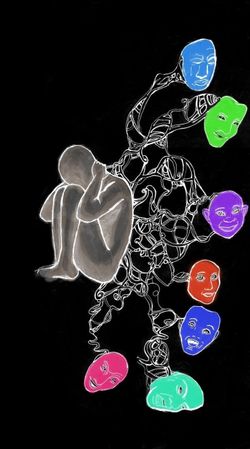Jul 24, 2024
People With Low Emotional Intelligence

#A#
Emotional intelligence (EI) shapes our interactions, relationships, and well-being. While some people naturally excel in this area, others may struggle w FCithout realizing it. This article explores ten behaviors commonly associated with low emotional intelligence, offering insights into how these traits manifest in daily life and their potential impact on personal and professional relationships.
#B#
Understanding Emotional Intelligence.
Before examining specific behaviors, it’s essential to grasp the concept of emotional intelligence (EI). EI encompasses the ability to recognize, understand, and manage our emotions and understand those of others. This skill set plays a crucial role in navigating social situations, maintaining healthy relationships, and achieving success in various aspects of life.
#C#
1. Struggling With Stress Management.
People with low emotional intelligence often find themselves overwhelmed by stress. When faced with pressure or unexpected changes, they may react impulsively or become paralyzed by anxiety. This difficulty in managing stress can lead to a cascade of negative consequences, affecting both mental and physical health.
#D#
2. Lacking Assertiveness.
Assertiveness requires a delicate balance between expressing one’s needs and respecting others’ boundaries. Those with low emotional intelligence often struggle to find this equilibrium. They may swing between two extremes: either becoming overly passive and avoiding conflict at all costs or reacting aggressively when expressing their opinions and desires.
#E#
3. Limited Emotional Vocabulary.
Accurately identifying and describing emotions is a cornerstone of emotional intelligence. People with low EI often have a limited emotional vocabulary, using vague terms like “good” or “bad” to describe complex feelings. This limitation hinders their ability to process and communicate their emotional experiences effectively.
#F#
4. Making Hasty Assumptions.
Quick judgments and a tendency to defend them vigorously are hallmarks of low emotional intelligence. People with this trait often jump to conclusions without considering alternative perspectives or gathering sufficient information. This behavior can lead to misunderstandings and conflicts in various settings.
#G#
5. Holding Onto Grudges
Forgiveness and moving forward is a crucial aspect of emotional intelligence. Those with low EI often struggle to let go of past grievances, allowing negative emotions to fester and potentially damage relationships. This tendency to hold grudges can create a toxic environment in both personal and professional spheres.
#H#
6. Difficulty Recognizing Others’ Emotions
Empathy and understanding others’ emotional states are critical components of emotional intelligence. People with low EI often struggle to recognize and interpret the emotions of those around them. This can lead to misinterpreting social cues and inappropriate responses in various situations.
#i#
7. Blaming Others For Their Feelings.
Taking responsibility for one’s emotions is a crucial aspect of emotional intelligence. Individuals with low EI often struggle in this area, frequently blaming others for how they feel. This tendency can lead to a victim mentality and hinder personal growth and self-awareness.
#J#
8. Being Easily Offended.
People with low emotional intelligence tend to be hypersensitive to perceived slights or criticism. They may take things personally and react defensively, even when no offense was intended. This oversensitivity can create tension in relationships and make it difficult for others to provide constructive feedback.
#K#
9. Struggling To Adapt To Change.
Flexibility and adaptability are hallmarks of high emotional intelligence. Conversely, those with low EI often find adjusting to new circumstances or perspectives challenging. This rigid thinking and behavior can hinder personal and professional growth and increase stress levels.
#L#
10. Lacking Self-Awareness
Perhaps the most fundamental aspect of low emotional intelligence is a lack of self-awareness. People with low EI may have difficulty understanding their personality, feelings, and behaviors. This lack of insight can lead to poor decision-making, personal growth challenges, and problems forming meaningful relationships.
By undefined
2 notes ・ 12 views
English
Beginner